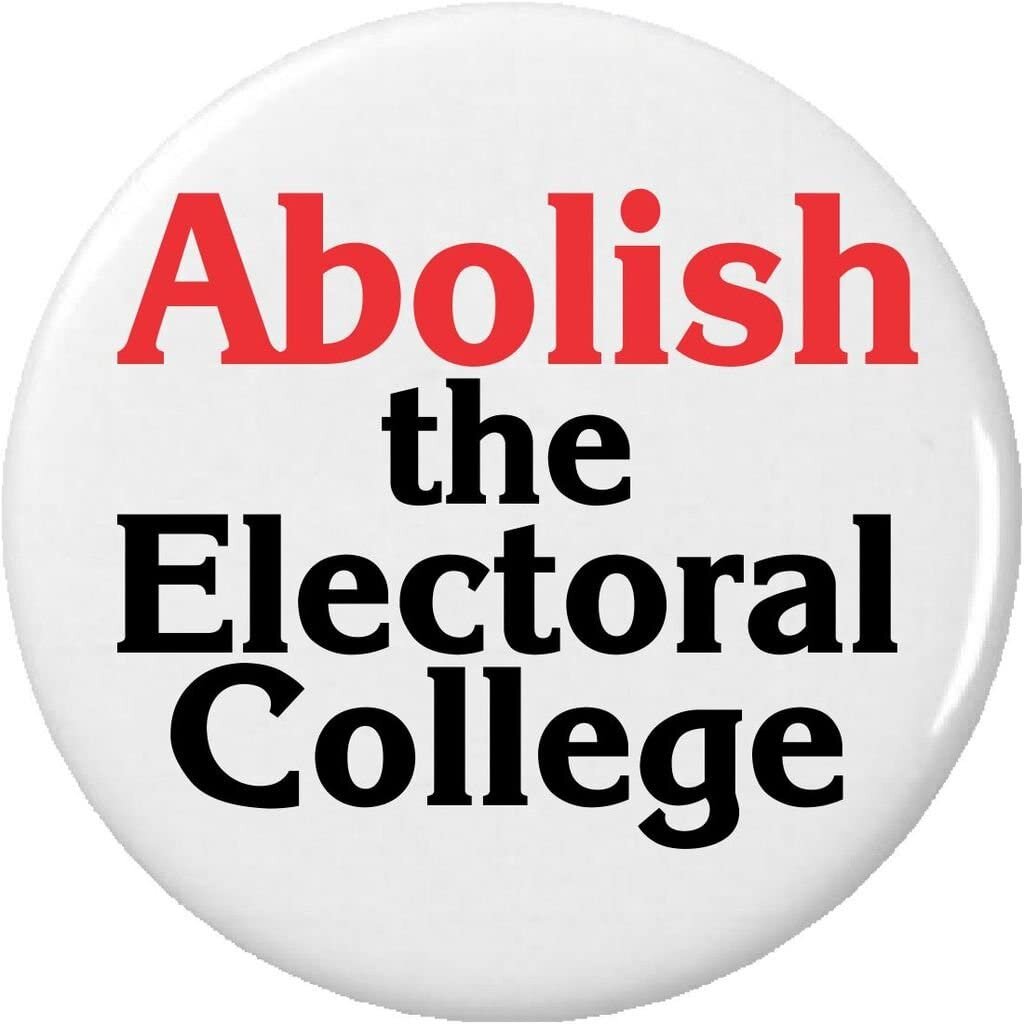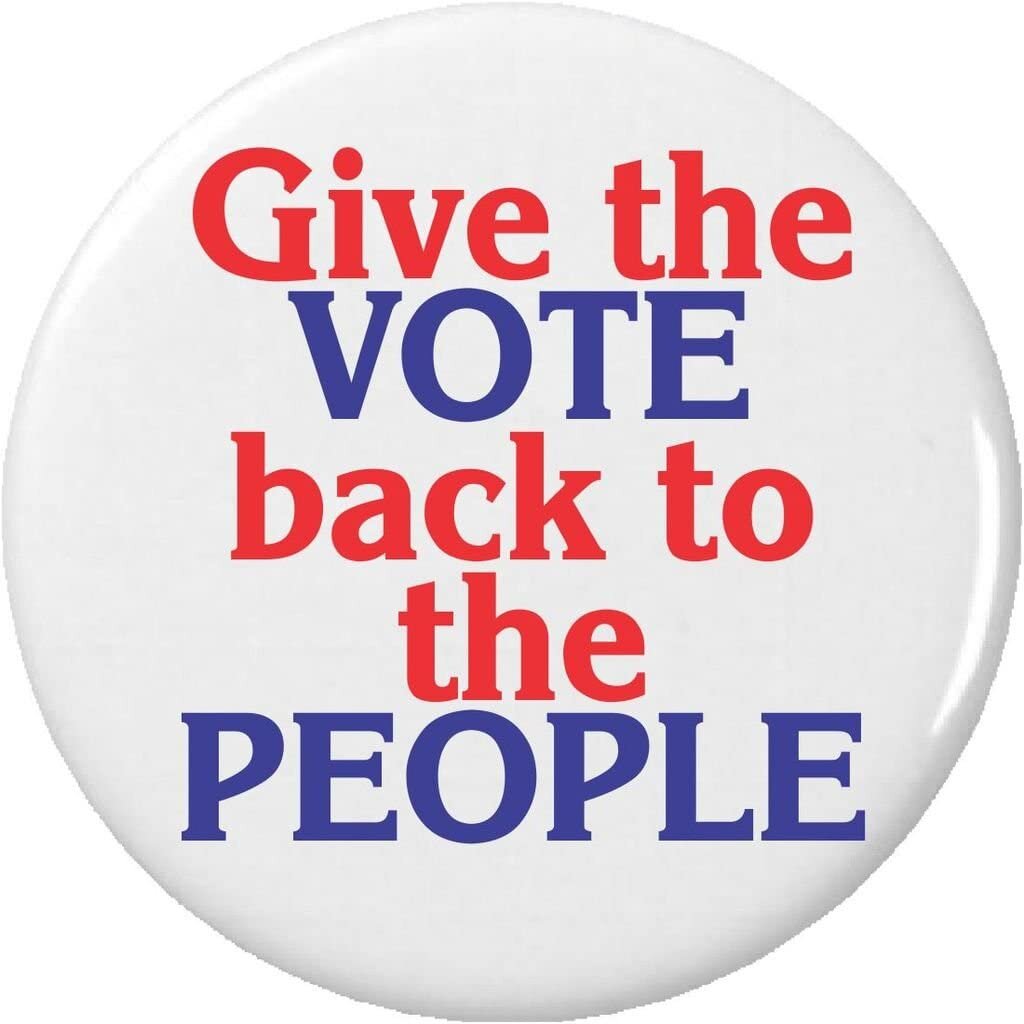When the Puritans of colonial New England went to church, they heard a stark message from the clergy: God predestines only a few people for salvation; pray that you’re among the chosen. Massachusetts pastor Thomas Shepard put a person’s odds of being among the elect at one in a thousand. Increase Mather told his flock that the Lord’s chosen were the “fewest of all people,” quoting Deuteronomy 7:7.
Later generations rebelled against this notion, fueling an explosion of upstart groups, from Methodists to Mormons, who taught that salvation was open to anybody who freely responded to God’s offer. They couldn’t stomach the thought that election was beyond a person’s control.
Why, then, do Americans passively accept in politics what they widely rejected in religion? As the past two decades have shown, American elections are irrational and undemocratic, favoring certain states and populations, often for arbitrary reasons.
The problem begins with the illogical system of presidential primaries, which, like a religious ritual whose origins are forgotten in the mists of time, privileges the first-in-the-nation Iowa caucus and New Hampshire primary. Every four years, presidential hopefuls beat a path to those states, lavishing attention for months on voters who, demographically at least, are hardly representative of the country at large.
Iowa, which constitutes just under one percent of the total U.S. population, is 90.3 percent white, 5.9 percent Hispanic, and 3.5 Black, according to 2018 estimates from the American Community Survey. New Hampshire is even whiter, at 93 percent. Compare the figures for the United States as a whole: 72.7 percent white, 17.8 percent Hispanic, and 12.7 percent Black. I have nothing against Iowans (my dad is an Iowa native) or people from New Hampshire, but why should we allow these states to vet presidential candidates for the whole nation?
Even more absurd than the primary system is the Electoral College, which twice since 2000 has handed the presidency to the popular vote loser. In 2016, though Hillary Clinton won the popular vote by nearly 2.9 million, Donald Trump carried the Electoral College by a margin of 306 to 232. Fortunately, such a mismatched outcome did not happen in 2020, but we must not lose sight of how easily it could have been otherwise.
Like the primary system, the Electoral College is biased toward the few over the many, in this case states with small populations. In 2016, California (the most populous state) had one electoral vote per 712,000 residents, while in Wyoming (the least populous state), the ratio was one to 195,000. Because the size of the Electoral College is capped at 538 (the number of senators and representatives in Congress, plus three electoral votes for the District of Columbia), the value of each state’s votes constantly fluctuates relative to others’ based on population growth or decline. Even with the decennial congressional reapportionment (a process rife with the corruption of state-level gerrymandering) maintaining fairness in such a convoluted electoral system is virtually impossible.
On top of this instability, the Electoral College focuses all the candidates’ attention on a few swing states. Candidates have little incentive to campaign in safe red or blue states, effectively ignoring voters’ concerns in those areas. Thus, Wisconsin and Michigan were “elect” states this time (given that they narrowly flipped for the Republicans in 2016) but neighboring Indiana, where I live, was mostly bypassed. California, with its 39 million people, was even more ignored.
Finally, there’s the problem of big money in U.S. elections. The Center for Responsive Politics recently reported that the 2020 election smashed spending records, with more than $6 billion expended on the presidential contest. Roughly a fifth of that money came from the super PACs made possible by the Supreme Court’s decision in Citizens United v. FEC (2010). In the month of October alone, spending by super PACs and other big-money groups totaled almost 1.2 billion. The unfettered arms race allowed by current campaign finance law enables wealthy corporations to exert disproportionate influence over candidates, further disenfranchising the average citizen.
In his last book, published just four months before his death, Senator John McCain, one of the chief architects of the 2002 campaign finance reform gutted by Citizens United, condemned the court’s decision as “an invitation to corruption” that led to an “explosion of unlimited and dark money in campaigns.”
The bottom line is that the people who count in U.S. elections are increasingly an elect few, favored by money, geography, or bad policy. How long will we put up with this travesty? If the United States has a distinctive theology or civil religion, surely it includes the principle that we are not acted upon by arbitrary forces, monarchial or otherwise, but rather are free to choose for ourselves. Every American who cherishes democracy ought to rebel against the undemocratic rot in our elections.
© 2020 by Peter J. Thuesen. All rights reserved
Further Reading
“2020 Election to Cost $14 Billion, Blowing Away Records,” Center for Responsive Politics, October 28, 2020.
John McCain and Mark Salter, The Restless Wave: Good Times, Just Causes, Great Fights, and Other Appreciations (New York: Simon and Schuster, 2018).
Peter J. Thuesen, Predestination: The American Career of a Contentious Doctrine (New York: Oxford University Press, 2009).
Elizabeth Warren, “It’s Time to Get Rid of the Electoral College,” March 19, 2019.
Jesse Wegman, “The Electoral College Will Destroy America,” New York Times, September 8, 2020.
Jesse Wegman, Let the People Pick the President: The Case for Abolishing the Electoral College (New York: St. Martin’s, 2020).

